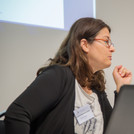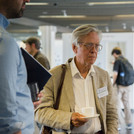Populism and Citizenship
In recent years, many societies have seen growing populism that challenges established politics, political culture and democratic processes of deliberation. Democratic procedures have been hollowed out as a consequence of the bank crisis in 2008, establishing non-democratic and non-legitimized procedures of decision-making and thereby dis-enfranchising and disempowering citizens. Tax cuts for the wealthy have left behind an insecure middle class that is afraid of its social decline, and growing numbers of excluded and left behinds. De-industrialization has turned a working class into an angry underclass with growing resentments not only against migrants but no less established politics.
To be sure, populism is not a new phenomenon. Politics in Latin America have widely been populist, be it the different varieties of left-wing or right-wing Peronism in Argentina since the 1940s or the more recent phenomena in Venezuela, Ecuador and Bolivia. No less, Europe has experienced the consequences of right wing populism in the first half of the 20th century leading not only to political radicalization but finally to the catastrophes of Nazism and fascism.
Contrary to these different phenomena, recent populism in Europe and the United States emerges against the background of established democracies. It seems as if at the beginning of the 21st century democracy has lost its cohesive forces exposing once integrated political communities to divisive and polarizing populist forces mainly from the political right, although we also observe left-wing populism in Europe.
Right-wing populist parties like the Front National (F), the Lega Nord (I) or the FPÖ (AUT) have long been with us but Germany, the Netherlands, or the Scandinavian countries have seen emerging populist social movements and parties in recent years. Moreover, in Poland or Hungary populist parties are establishing right-wing autocratic regimes that threaten both civil and political rights of their citizenry.
No doubt, the most important and so far consequential populist phenomena have been the British referendum for Brexit and the electoral campaign of Republican Presidential candidate, Donald Trump. On both sides of the Atlantic, maybe not too surprisingly in the most neo-liberalized countries of the Western world, populism has become the very face of politics. Contrary to high hopes of an “ever closer union” market liberal EU has triggered social forces that now pose a threat to the Union’s existence and discredit democratic politics.
The causes and processes of all these different developments are still poorly understood. The social sciences are struggling to deliver convincing answers to the complex problems. One critical shortcoming is the lack of stringent analytical frameworks to understand and explain the social dynamics at play.
This year’s CCP conference aims at contributing to the important on-going debate on the different modalities of populism by connecting populism to the concept of citizenship. As citizenship draws social boundaries by assigning certain rights to certain people it is also about democracy and democratic processes and questions about inclusion and exclusion that lie at the heart of the populist threat to citizens’ civil, political and social rights.
Framing the debate on populism in this way allows to raise new questions about the role of populism in the contests over citizenship rights in a context of intensified migration, religious pluralism, and social inequality. Thus, the CCP’s Annual Conference “Populism and Citizenship” aims to offer a forum for assessing current developments in populism.










